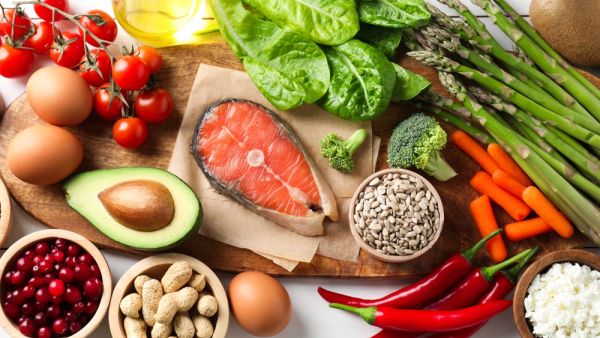Testosterone is a vital hormone that plays a key role in muscle growth, fat distribution, bone density, and overall male health. While testosterone levels naturally decline with age, certain foods can help boost production or support healthy levels. Here’s how you can increase testosterone by making specific dietary choices:
1. Eggs
- Why it Helps: Eggs are a rich source of cholesterol, which is necessary for the production of testosterone. They also contain protein and vitamin D, both of which are important for hormone regulation.
- How to Consume: Eating whole eggs is beneficial since most of the testosterone-boosting nutrients are found in the yolk.
2. Tuna
- Why it Helps: Tuna is high in vitamin D, which is linked to longer lifespans and testosterone production. Studies have shown that men with higher levels of vitamin D tend to have higher levels of testosterone.
- How to Consume: One serving of tuna (fresh or canned) provides the daily recommended amount of vitamin D, helping support hormone balance.
3. Oysters
- Why it Helps: Oysters are packed with zinc, a mineral essential for testosterone production. Zinc deficiency can lead to low testosterone levels, and oysters contain more zinc per serving than any other food.
- How to Consume: Including oysters in your diet a couple of times a week can significantly boost your zinc intake and support healthy testosterone levels.
4. Leafy Green Vegetables
- Why it Helps: Vegetables like spinach, kale, and Swiss chard are rich in magnesium, which has been shown to increase testosterone levels, particularly in active individuals.
- How to Consume: Consuming these vegetables raw or lightly cooked preserves their testosterone-boosting nutrients.
5. Lean Meat (Beef and Chicken)
- Why it Helps: Lean meats are high in protein and healthy fats, which are necessary for testosterone production. Beef, in particular, contains zinc, iron, and vitamin D—all of which help maintain healthy testosterone levels.
- How to Consume: Choose grass-fed, lean cuts of beef or chicken, and avoid processed meats, which can negatively affect testosterone levels.
6. Fortified Cereals
- Why it Helps: Many cereals are fortified with vitamin D, which is crucial for testosterone production. Look for cereals that are also rich in whole grains and low in sugar.
- How to Consume: Incorporate fortified cereals into your breakfast to help meet your daily vitamin D needs.
7. Garlic
- Why it Helps: Garlic contains a compound called allicin, which can help reduce cortisol levels. High cortisol (a stress hormone) can lower testosterone, so eating garlic helps keep testosterone levels stable.
- How to Consume: Adding fresh garlic to your meals, like stir-fries or sauces, can help support testosterone levels over time.
8. Nuts and Seeds (Pumpkin Seeds, Almonds, Walnuts)
- Why it Helps: Pumpkin seeds and other nuts are high in magnesium and zinc, both of which are essential for maintaining and boosting testosterone.
- How to Consume: Include a handful of nuts or seeds as a snack or add them to salads or yogurt for a testosterone-friendly boost.
9. Fatty Fish (Salmon, Sardines, Mackerel)
- Why it Helps: Fatty fish are rich in omega-3 fatty acids, which reduce inflammation and promote hormone production, including testosterone. They also contain vitamin D, another testosterone-boosting nutrient.
- How to Consume: Eating fatty fish like salmon or mackerel 2-3 times per week can increase testosterone naturally.
10. Pomegranates
- Why it Helps: Pomegranates are loaded with antioxidants and have been shown in studies to increase testosterone levels, as well as improve mood and blood pressure.
- How to Consume: Drinking fresh pomegranate juice or eating the seeds regularly may help elevate testosterone levels.
11. Avocados
- Why it Helps: Avocados are rich in monounsaturated fats, which are healthy fats that support hormone production, including testosterone. They also contain vitamin E and zinc.
- How to Consume: Add avocado to salads, sandwiches, or smoothies for a testosterone-friendly addition to your diet.
12. Ginger
- Why it Helps: Ginger is another food that has been shown to increase testosterone levels, especially in men who are experiencing a deficiency. It also boosts overall reproductive health.
- How to Consume: Add fresh ginger to tea, soups, or stir-fries to take advantage of its testosterone-boosting properties.
13. Berries, Cherries, and Grapes
- Why it Helps: These fruits are high in antioxidants, which can help protect cells from damage, reducing the likelihood of inflammation that may negatively affect testosterone production.
- How to Consume: Snack on these fruits or add them to smoothies for a natural boost in antioxidants and testosterone support.
To naturally boost testosterone through diet, focus on foods rich in nutrients like zinc, magnesium, vitamin D, and healthy fats. Incorporating eggs, fatty fish, leafy greens, and foods like garlic and ginger can help increase testosterone levels.
Avoid processed foods and excessive sugar, and pair your diet with regular exercise for optimal hormone health.








